Kim Cheng Sheang
Multilingual Controllable Transformer-Based Lexical Simplification
Jul 05, 2023



Abstract:Text is by far the most ubiquitous source of knowledge and information and should be made easily accessible to as many people as possible; however, texts often contain complex words that hinder reading comprehension and accessibility. Therefore, suggesting simpler alternatives for complex words without compromising meaning would help convey the information to a broader audience. This paper proposes mTLS, a multilingual controllable Transformer-based Lexical Simplification (LS) system fined-tuned with the T5 model. The novelty of this work lies in the use of language-specific prefixes, control tokens, and candidates extracted from pre-trained masked language models to learn simpler alternatives for complex words. The evaluation results on three well-known LS datasets -- LexMTurk, BenchLS, and NNSEval -- show that our model outperforms the previous state-of-the-art models like LSBert and ConLS. Moreover, further evaluation of our approach on the part of the recent TSAR-2022 multilingual LS shared-task dataset shows that our model performs competitively when compared with the participating systems for English LS and even outperforms the GPT-3 model on several metrics. Moreover, our model obtains performance gains also for Spanish and Portuguese.
Controllable Lexical Simplification for English
Feb 06, 2023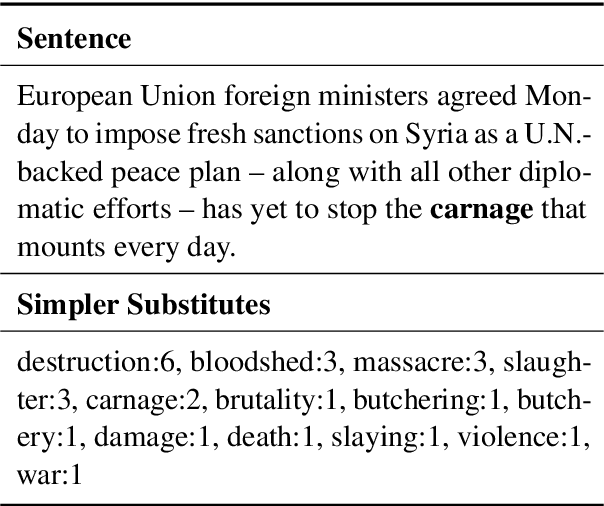
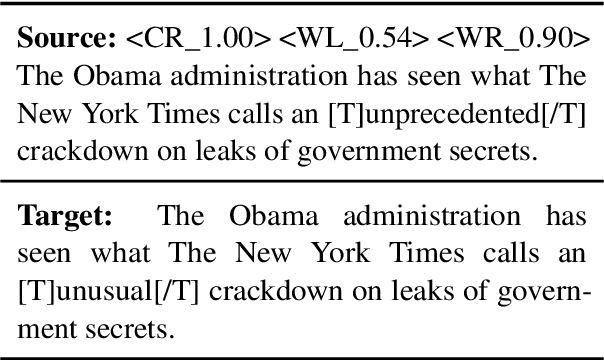


Abstract:Fine-tuning Transformer-based approaches have recently shown exciting results on sentence simplification task. However, so far, no research has applied similar approaches to the Lexical Simplification (LS) task. In this paper, we present ConLS, a Controllable Lexical Simplification system fine-tuned with T5 (a Transformer-based model pre-trained with a BERT-style approach and several other tasks). The evaluation results on three datasets (LexMTurk, BenchLS, and NNSeval) have shown that our model performs comparable to LSBert (the current state-of-the-art) and even outperforms it in some cases. We also conducted a detailed comparison on the effectiveness of control tokens to give a clear view of how each token contributes to the model.
Findings of the TSAR-2022 Shared Task on Multilingual Lexical Simplification
Feb 06, 2023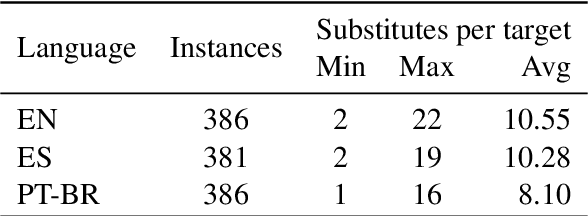
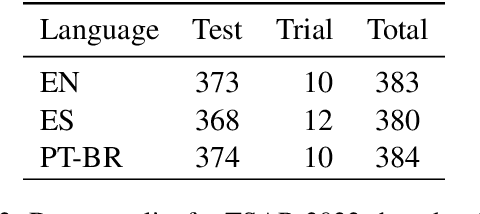
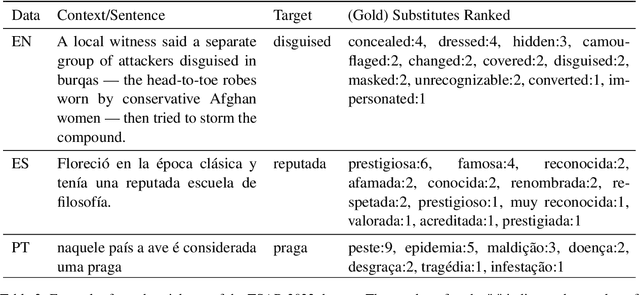
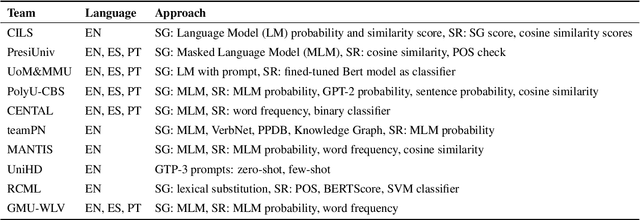
Abstract:We report findings of the TSAR-2022 shared task on multilingual lexical simplification, organized as part of the Workshop on Text Simplification, Accessibility, and Readability TSAR-2022 held in conjunction with EMNLP 2022. The task called the Natural Language Processing research community to contribute with methods to advance the state of the art in multilingual lexical simplification for English, Portuguese, and Spanish. A total of 14 teams submitted the results of their lexical simplification systems for the provided test data. Results of the shared task indicate new benchmarks in Lexical Simplification with English lexical simplification quantitative results noticeably higher than those obtained for Spanish and (Brazilian) Portuguese.
 Add to Chrome
Add to Chrome Add to Firefox
Add to Firefox Add to Edge
Add to Edge